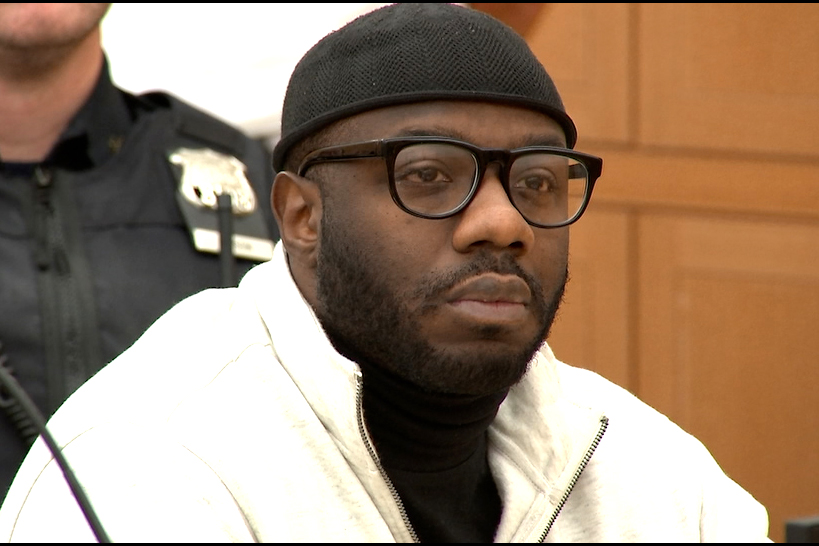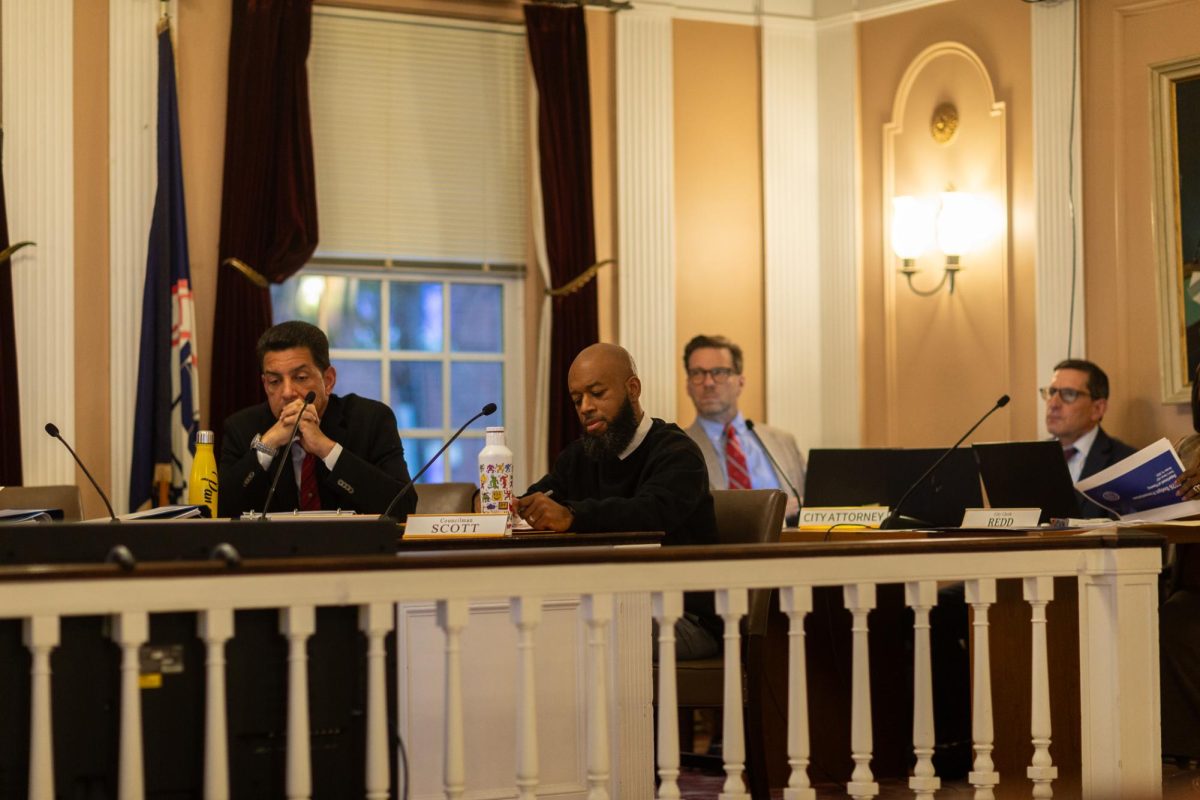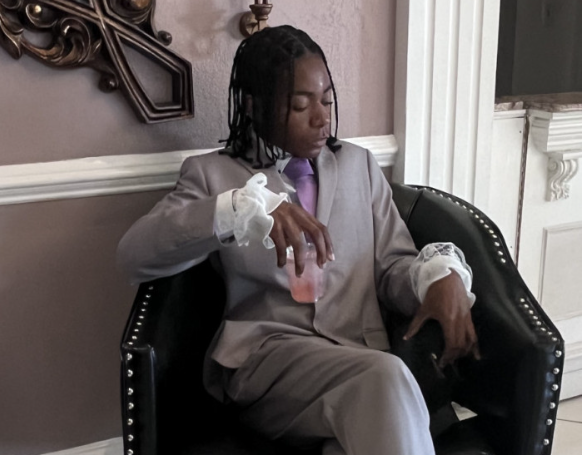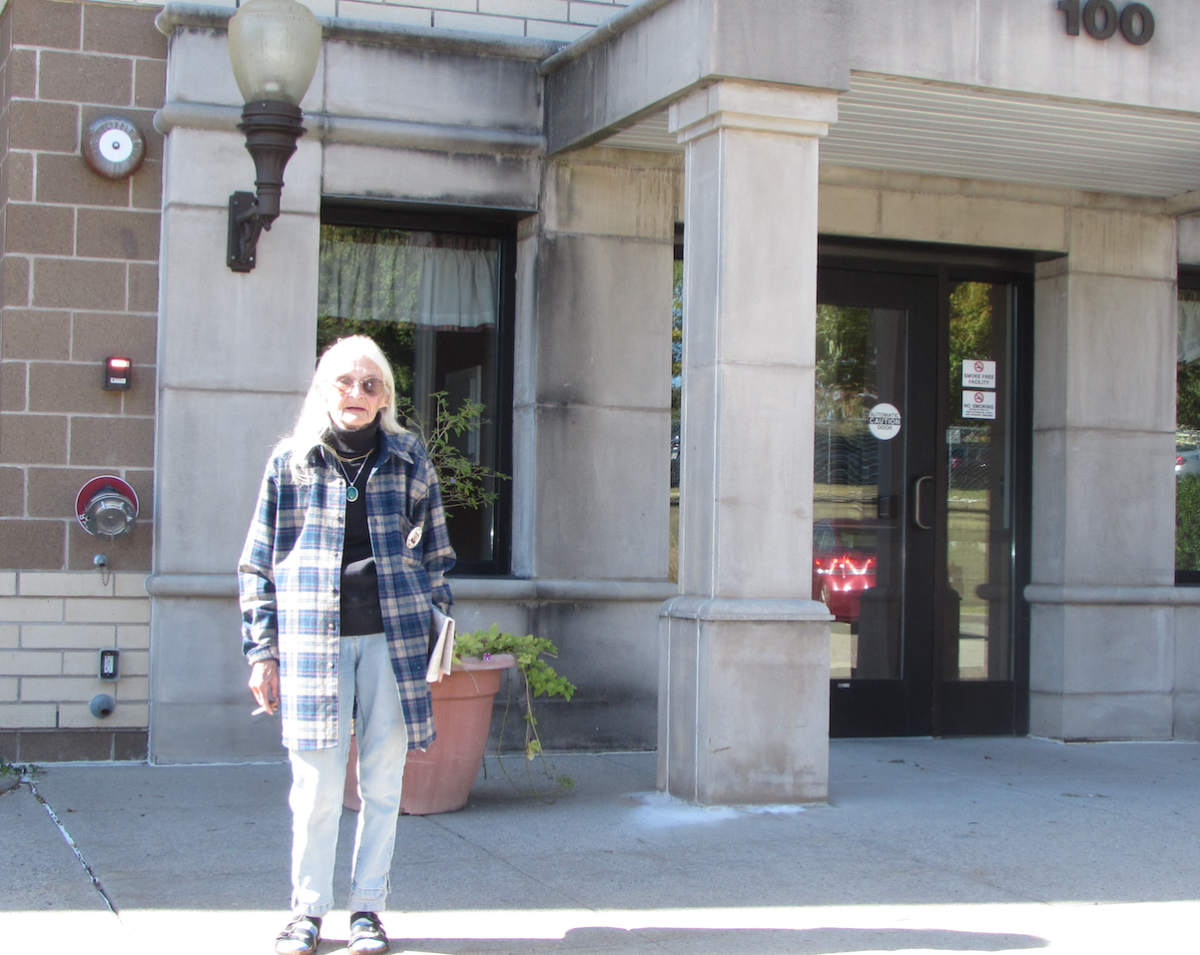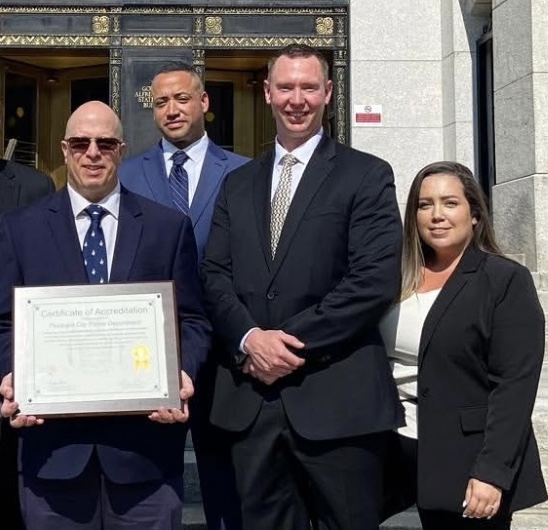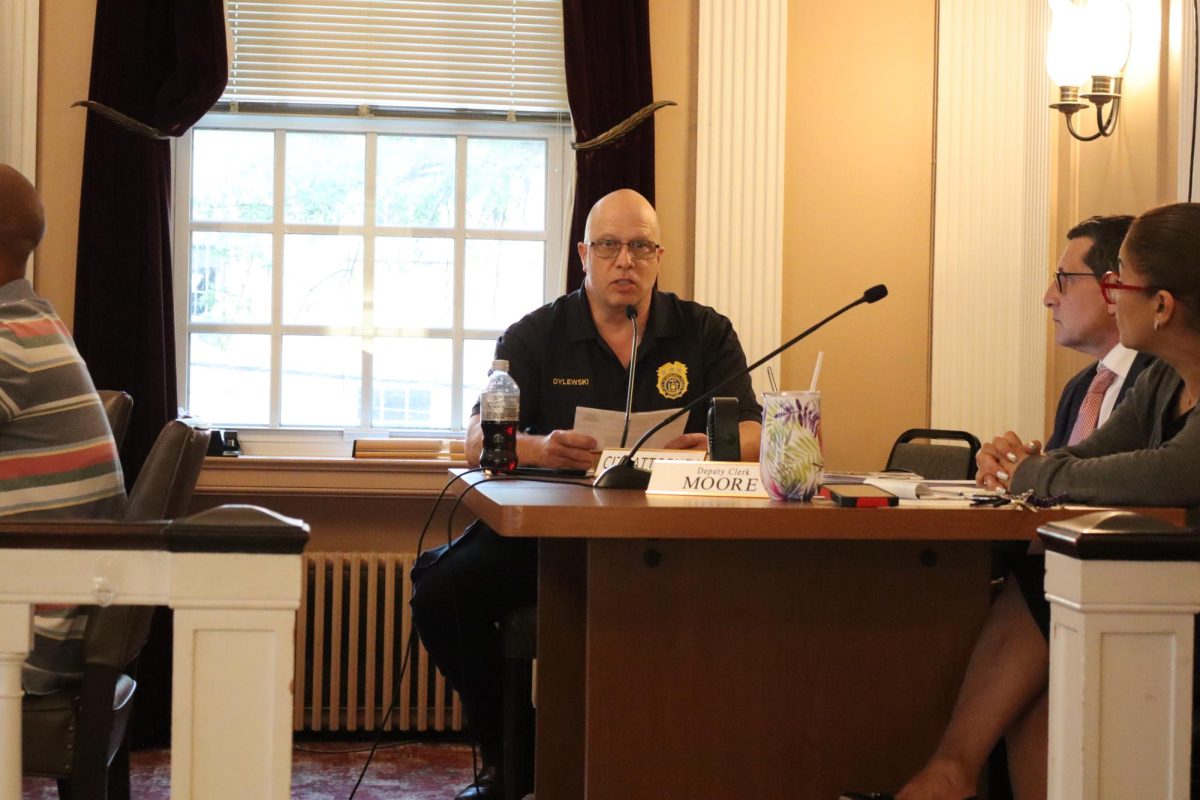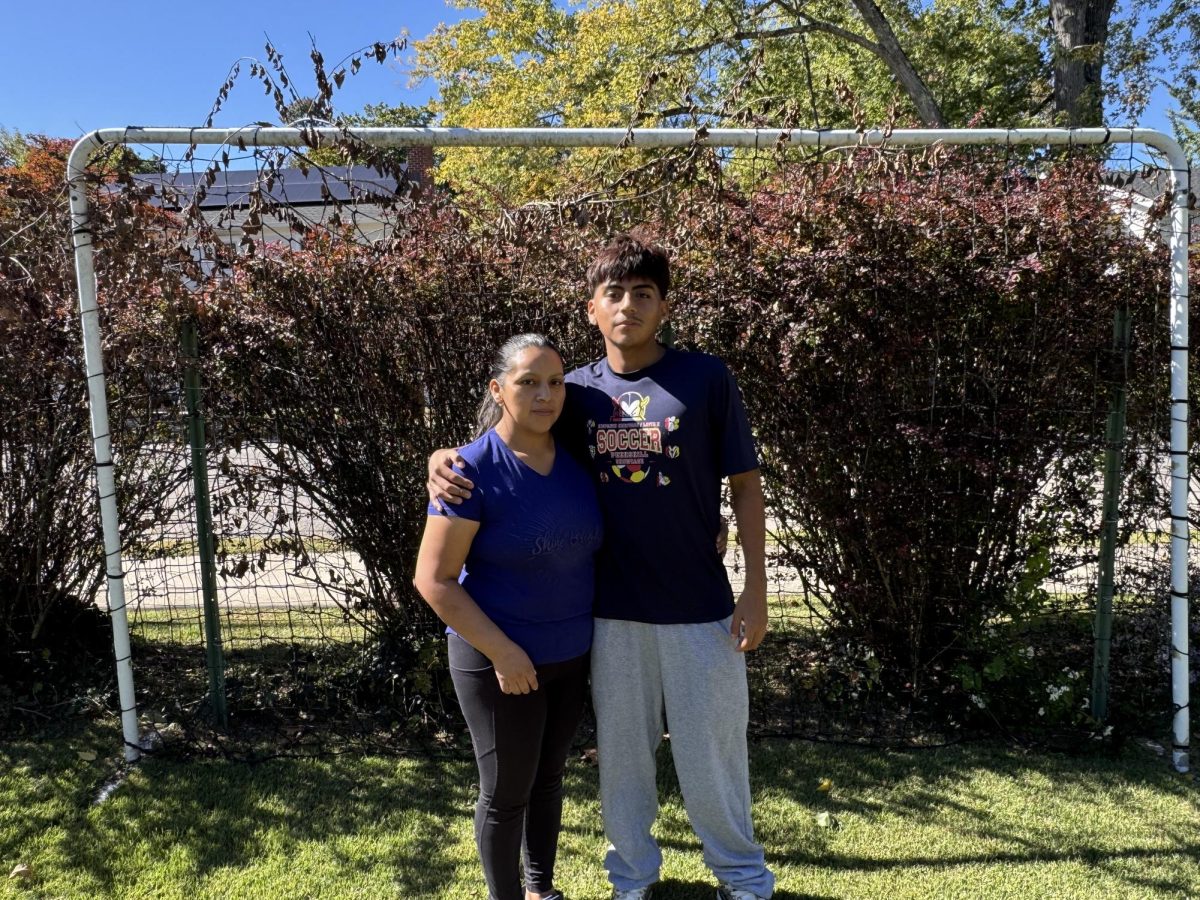A Westchester County prosecutor used words on Wednesday morning (Oct. 15) to describe the savage beating of Westchester social worker and Peekskill resident Maria Coto, delivered with fists and Timberline work boots.
Then, in the afternoon, prosecutors played the police video showing the battered and lifeless Coto face down on the floor in a pool of her bright red blood, conveying the horror that no words ever could.
Jurors and spectators present on Oct. 15 in County Judge George Fufidio’s third-floor White Plains courtroom heard Westchester County Assistant District Attorney Kevin Jones allege in his opening statement that the defendant, Hasseem Jenkins of Peekskill, “brutally and severely beat Mario Coto to death” in Apartment #2 at the rear of 900 South St. on May 14, 2024.

Coto managed to dial 911 from her cellphone when Jenkins’ attack began and the call connected. “You will hear the sound of his boots smashing her face,” Jones said. “Crime scene photos will show some of her hair ripped out. His cruelty knew no bounds.”
Prosecutors allege Jenkins tore the phone from Coto’s hand and the 911 recording hears him yell out “Give me the phone, bitch – this bitch is dead.”
On the Peekskill Police bodycam video, jurors saw police enter the apartment and order Jenkins to raise his hands. When he failed to comply, a Taser shot temporarily floored him and police then discovered Coto.
Jurors watching on screens in front of their seats and spectators viewing large screens on both side walls of the courtroom see the officers approach Coto. She lies motionless on her chest, arms spread, and barely breathing. The officers turn her lifeless body on its side to check her pulse and heartbeat, revealing her bloodied face. Her skull was exposed and her eyes swollen shut.
A fateful day, a knock on the wrong door
Prosecutors charge Jenkins with second-degree murder, burglary, criminal possession of a weapon, robbery and resisting arrest. The 32-year-old man faces 25 years to life in state prison if convicted.
Evidence of Coto’s last day of conscious life presented to the jurors showed a selfie she and a co-worker took after their lunch. Surveillance video shows Coto driving her county car and parking on South Street, across from Wells Fargo bank.
She’s seen walking past the South Street Deli before she heads behind that building and climbs the wooden stairs leading to two apartment doors at the landing.
According to prosecutors, Coto mistakenly knocked on the door of Jenkins’ uncle. When she’s let into the apartment, Jenkins then begins his vicious assault and chases her down into the second apartment when she tries to flee, prosecutors allege.
Coto remained in a vegetative state for 37 days at the Westchester Medical Center before she died of her injuries on June 19, 2024. She was 56 years old and planning for retirement after more than 25 years of service with the Westchester County Department of Social Services. The medical examiner’s office ruled her death a homicide.
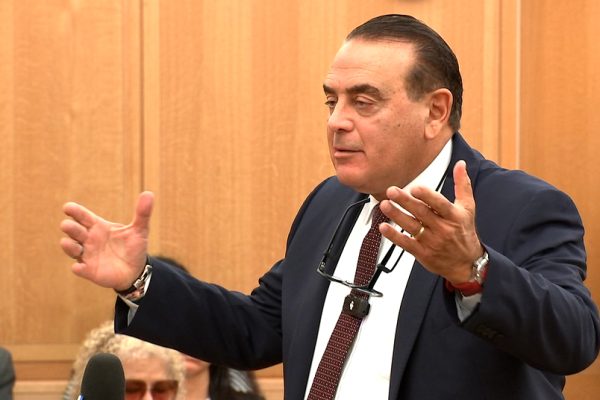
Family, co-workers view their loved one’s last moments
The six rows of spectator seats were filled to hear Westchester County prosecutors and Jenkins court-appointed attorney Angelo MacDonald give their opening statements to the jury.
Coto’s aunt, cousin and niece, along with numerous Westchester County social services workers, sat through the presentations and the video evidence. Westchester County District Attorney Susan Cacace sat in the second row during the morning session.
Anticipating the defense that MacDonald is expected to present, Assistant D.A. Jones alleged during his opening remarks that Jenkins regularly used PCP “for fun, by choice, and not by some mistake.”
In his opening remarks, MacDonald reminded jurors that they had promised to keep an open mind on the case until all the evidence was presented.
“Words evoke visions of violence, aggression, fear, in the death of this young lady,” he said. “You must not close down because of emotions and not listen to the evidence.” He asked the jurors to wait until they hear the “naked truth” in the case and to consider intent.
Invoking an “involuntary intoxication” defense, MacDonald defined it as a situation where “you do not make the choice – someone makes it for you.” He is expected to concede during the defense portion of the case that Jenkins was high on PCP during the attack but that he didn’t know that a cigarette he was given was laced with the drug. No decision has been made yet whether or not Jenkins will testify.
MacDonald used the same defense theory while representing Christopher Peloso in a 2014 Orange County case involving injuries to police officers and civilians when Peloso crashed his car into the victims following a police chase.
MacDonald argued that Peloso was drugged when someone spiked his drinks at a strip club, leaving him intoxicated above the legal limit. Peloso was convicted at trial but the top verdicts were reversed by an appeals court five years later.
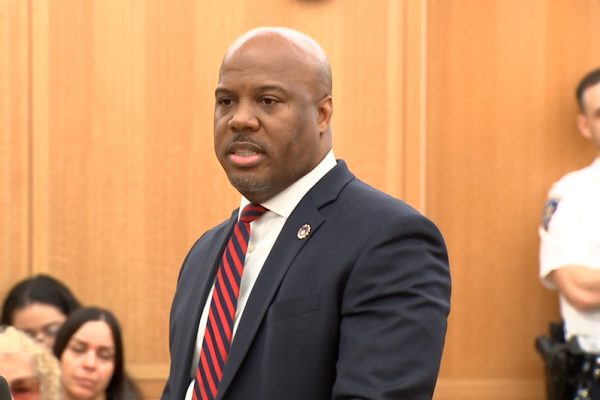
Intent, or drug-fueled rage?
During the prosecutors’ first day presenting their case, Assistant D.A. Jones and Trial Division Chief Nadine Nagler pointed to pieces of evidence they claim show that Jenkins targeted Coto because he realized she was a county social worker.
Jones said that Jenkins had not completed paperwork for Section 8 eligibility and was behind on his rent. “He saw her DSS badge – his words were not random – they were directed at Maria Coto the social worker.”
But MacDonald raised doubts that Jenkins could see her ID badge the way it was displayed in the lanyard around her neck. He also questioned Peekskill Police Officer Michael Nalbandian during cross-examination, asking why the first apartment was not searched. He also tried to ask if the officer was familiar with the actions of people on PCP but Judge Fufidio stopped that line of questioning.
After the jury was sent home for the day, Judge Fufidio admonished all the attorneys to make him aware in advance of any video evidence that could have a prejudicial effect on jurors by its gruesome nature. “Frankly, there’s a lot of gory evidence in this case,” the judge said.
One juror picked to serve was dismissed by Judge Fufidio before court on Wednesday after that juror called in sick and claimed he would not be coming to trial because he had to provide content to his thousands of social media followers. An alternate replaced that juror, leaving three other alternates in place. The case is expected to last for four to five weeks.


